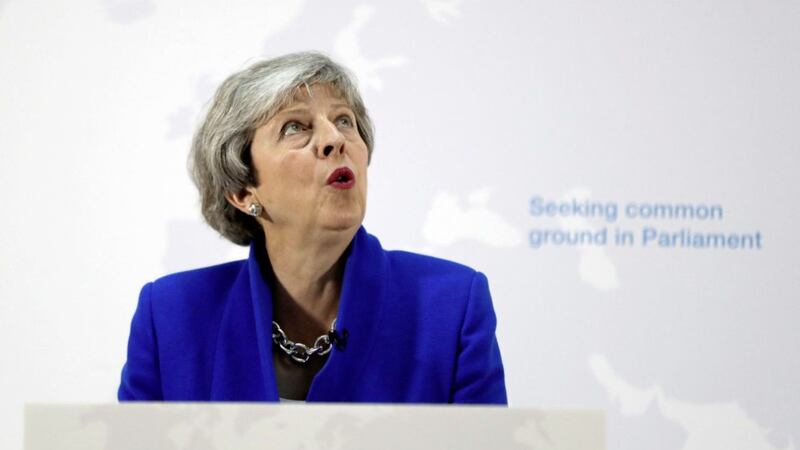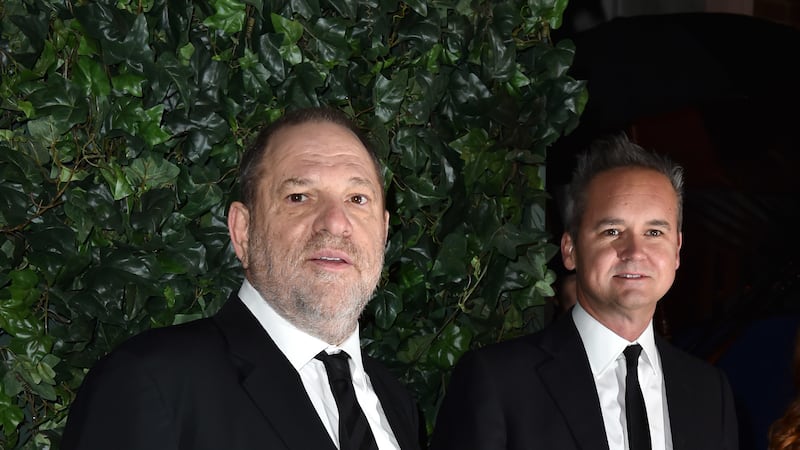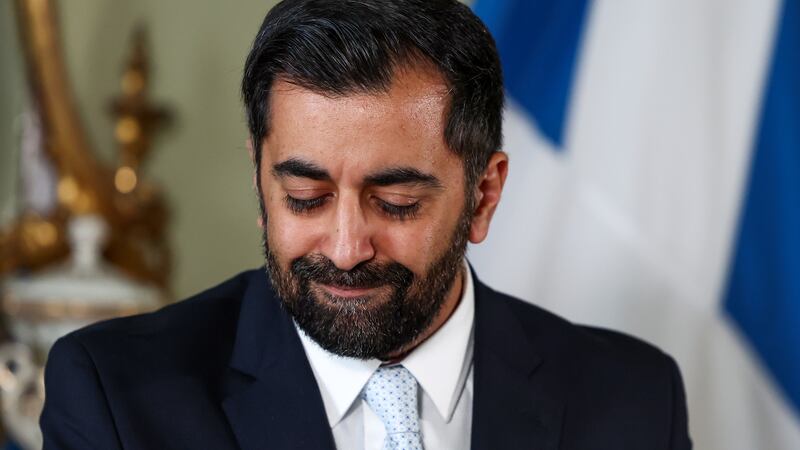MPs will be given the opportunity to vote on whether to hold a second referendum on Britain's membership of the European Union, Theresa May has announced.
The prime minister said the vote would be contained in the Withdrawal Agreement Bill, as she warned that a failure to reach an agreement on Brexit would lead to a "nightmare future of permanently polarised politics".
Speaking in central London, Mrs May outlined how her "new Brexit deal" differs to the previous deals rejected by Parliament – including a commitment in law to let Parliament decide on the customs issue.
She said: "I recognise the genuine and sincere strength of feeling across the House on this important issue.
"The government will therefore include in the Withdrawal Agreement Bill at introduction a requirement to vote on whether to hold a second referendum and this must take place before the Withdrawal Agreement can be ratified."
Mrs May also told the audience at PWC in London that the government would introduce a new Workers' Rights Bill to "ensure UK workers enjoy rights that are every bit as good as, or better than, those provided for by EU rules.
"And we will discuss further amendments with trade unions and businesses."
Mrs May said the deal sets out that the government will seek to conclude alternative arrangements to replace the backstop by December 2020, "so that it never needs to be used".
Should it be used, she said the government was committed to keeping Britain aligned with Northern Ireland.
MPs will have to approve the negotiating objects and final treaties for the UK's future relationship with the EU.
And Mrs May said there would be "no change in the level of environmental protection when we leave the EU".
She also pledged that the UK would seek "as close to frictionless trade in goods with the EU as possible" while outside the single market – while ending free movement.
And the UK will "keep up to date" with EU rules for goods and agri-food products that are relevant to checks at the border.
Mrs May said there would be a legal duty to secure changes to the political declaration to reflect the new deal.
In a plea to MPs, she concluded: "I say with conviction to every MP of every party – I have compromised. Now I ask you to compromise too.
"We have been given a clear instruction by the people we are supposed to represent.
"So help me find a way to honour that instruction, move our country and our politics forward, and build the better future that all of us want to see."
Meanwhile, Business leaders have urged MPs to back Theresa May's "new Brexit deal" but trade unionists have dismissed it as a "desperate last throw of the dice". Despite the prime minister's promises on workers' rights, Manuel Cortes, general secretary of the TSSA transport union, said there were "no real guarantees" and he called for a general election.
However, Carolyn Fairbairn, director-general of the Confederation of British Industry, urged MPs to support compromise so the country can move forward.
"Brexit has left the economy stranded in no man's land," she said.
"The prime minister's offer provides a way forward, but only MPs can take it."
Commons Leader Andrea Leadsom said she would back the bill but warned against watering it down and stressed the need to be prepared for a no-deal Brexit.
She said she would only support the bill "so long as it continues to be leaving the European Union" - something she defined as being outside the single market and the customs union.
Asked if Labour could abstain on the bill, shadow chancellor John McDonnell told a Westminster briefing: "No. I think members of parliament will want to fulfil their duties by expressing a view on this."
He expressed scepticism that the government would be able to give sufficient assurances on issues such as workers rights and the environment to win Labour support.
He said: "These are the dying days of an administration and it's very difficult to see that they can provide any form of security that would enable Labour MPs to vote for this."
DUP Westminster leader Nigel Dodds said: "We will examine the legislation closely when the bill is finally published but the fundamental flaws of the draft Withdrawal Agreement treaty itself remain unchanged.
"The only positive vote in the House of Commons on Brexit was the Brady amendment, which called for alternative arrangements to the backstop to be implemented in the treaty and other changes to remove the current threats posed by the backstop.
"We will have to await the publication of the text of the bill to see what the proposals actually mean."
Several Eurosceptic Conservatives reacted angrily after Theresa May proposed a new Brexit deal with the promise of a vote on a second referendum.
Tweeting shortly after her speech at PricewaterhouseCoopers in London, Steve Baker, a prominent member of the European Research Group, described the reaction of Brexiteer campaigners and MPs as "extremely adverse".
Mr Baker said: "Of course, I will vote against this muddled implementation of a failed deal which only adds yet more uncertainty. A truly awful situation."
"Our next leader needs to take us out of the EU, and the sooner they start that work, the better it will be," he continued.
ERG chairman Jacob Rees-Mogg said the PM's proposals were "worse than before and would leave us bound deeply to the EU".
"It's time to leave on WTO terms," he said.
Some MPs who voted in favour of the Prime Minister's deal the last time it was put before the Commons indicated that they would not do so on this occasion.
Former London mayoral candidate Zac Goldsmith tweeted: "I supported the PM's rotten deal last time as I felt we could then draw a line and select a new PM to pick up the pieces. But I cannot support this convoluted mess.
"That it takes us towards a rigged referendum between her deal and no Brexit is just grotesque. The PM must go."
Similarly, Tory MP Simon Clarke tweeted: "I supported the PM at MV3 (meaningful vote three), to try to get us out on 29 March. But this speech from the PM means there is no way I will support the Withdrawal Agreement Bill."
Meanwhile, Labour MP Wes Streeting, who backs a second referendum, suggested he too would be unable to back the Withdrawal Agreement Bill.
"Lots of us have been very clear that the PM's deal can pass on the condition that the people get to decide through a referendum. That's not what the PM is promising I'm afraid. Will look at the detail first, but on that basis it's unlikely I'll vote for the Bill at Second Reading."
Scotland's First Minister Nicola Sturgeon tweeted that the SNP would not support the PM's plan without a guarantee that it will lead to a second referendum.
"The PM is asking MPs to vote for a Bill that takes us out of the EU - in Scotland's case against our will - out of the single market and possibly out of the Customs Union. And with no actual commitment to put the deal to a second referendum. @theSNP will not do that.
She added: "In PM's own words, 'if MPs vote against the Bill, they will be voting to stop Brexit.' That is what @theSNP will do because Scotland did not vote for Brexit. #StopBrexit."
While most of Mrs May's cabinet members did not react immediately to the speech, there was support for her proposal from International Development Secretary Rory Stewart and Work and Pensions Secretary Amber Rudd.
Mr Stewart posted: ".@theresamay is right - we need to get Brexit done. The delay and uncertainty is doing real damage to businesses and consumer confidence across the country.
"Then - when we have got it over the line - we can move on and talk about the wider issues that really matter to people, while crafting the future of British foreign policy."
Mrs Rudd tweeted: "The Prime Minister is doing everything she can to ensure we leave the EU in a way that protects jobs, security and the Union. I support her and urge colleagues to back the deal. Once passed business investment and confidence will surge, building on strong national employment."








